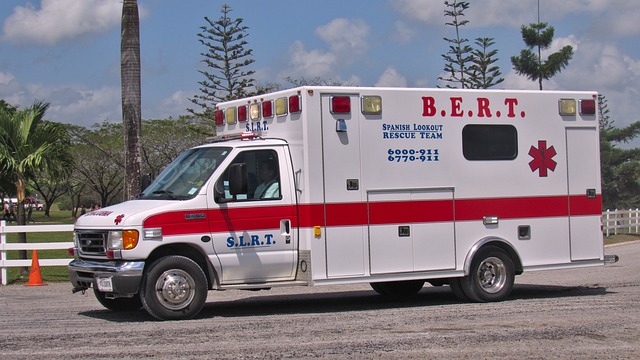Yes, a truck is a car. As cars became more commonplace in early 20th century America, they started to replace horse-drawn carriages (how we miss you, fine equines), and cars simply became a short form, or slang, to refer to these new kinds of motorized carriages.
With time, cars became more common, and eventually, subcategories of cars popped up—trucks, much bigger “carriages” designed to carry goods rather than people, became a familiar sight, as did other wheeled devices built to carry all sorts of things in different ways (vans, convertibles, SUVs, etc.). All of the vehicles were distinctive and varied in some way. Cars, however, are fundamentally just means of transporting goods and people.
Continue reading to find out more about the distinctions between cars and trucks, as well as the various kinds of cars and trucks.
Is a Truck a Car? Car Vs Truck
Technically yes.
Carriage is abbreviated as car. The word “carriage” comes from the verb “to carry,” which suggests a wheeled machine used to transport goods or people as opposed to a person.
Carrying something by lifting it and moving it by hand is different from using a carriage, which has wheels. Car is a colloquial term for carriage.
Then, anything at all can be used to move carriages or other devices that carry objects on wheels. Things are moved by being pulled by horses in horse-drawn carriages. Boxcars are pulled by a locomotive rather than a horse or another animal when a train is moving them.
What we now refer to as cars were originally known as horseless carriages before being shortened to just “car” in the etymology. The term “car” is still used to describe anything that is propelled by wheels, including elevators; for example, the box is a vehicle that is propelled by wheels up and down an elevator shaft.
Any wheeled vehicle that enables a box or other object to carry people or goods is referred to as a carriage, or simply a car.
While a truck is technically a car, no one uses that word in everyday speech because it is simpler to use the word truck, which is a very specific category of carriage/car. Just like a train-car or an elevator-car, there are simply many categories of carriage devices that all fit the broad slang term of car. Trucks come in a variety of types, which are themselves subcategories within subcategories. Nevertheless, what you likely consider to be a car also falls into a number of other categories, which is why there are sedans, coupes, minivans, station wagons, sport utility vehicles (SUV), and so forth.
All of these objects are carriage devices, so they all qualify as cars, including sedans, vans, and trucks. Without specifying the specific type of car you’re referring to, the term “car” is simply too general to have much meaning.
Anyone who asserts they are not has simply neglected to research the etymology of the words.
Can You Consider a Truck as a Car?
Some etymologists believe that the word car originated from the Latin word carrus/carrum and the French word carre. The Latin word means wheeled vehicle, while the French word means two-wheeled cart. Both words came from karros, a Gaulish word that means a horse-drawn vehicle like a carriage, wagon, or cart.
So, the modern term car can be regarded as a short form for carriage. In this case, both cars and trucks can be considered carriages. Therefore, a truck qualifies as a car in this context. When the car was invented, it was originally called a self-propelled carriage. This term was later shortened to just car. A self-propelled carriage also includes a truck. The definition is thus nullified.
Cars and Trucks
Cars are typically small, multi-person vehicles in the United States. Thus, there isn’t much confusion in this area. Confusion frequently occurs in the truck section.
In the United States, pickups are also regarded as trucks. Both small and large pickup trucks are available. Both vehicles are trucks in this country. However, they are nothing compared to the real big trucks that are moving cargo coast to coast.
I suppose you could classify the full-size and compact pickup trucks as cars. Privately owned pickup trucks are regarded as passenger vehicles in many states for the purposes of insurance and vehicle registration.
In actuality, these pickup trucks are crossbreeds between passenger cars and cargo-hauling vehicles. Most of these trucks are used for personal, not business, purposes. They are closely related to cars, so they can be alternately called cars.
But referring to large tractor-trailers as cars would be out of the ordinary for you. These enormous trucks are primarily intended for business purposes; they are not meant for private use. Furthermore, no matter what you do, you cannot fit these commercial trucks in a garage designed for standard cars.

Technical Definitions of Cars and Trucks
Let’s get into the specifics of the problem. Does the term “truck” or “car” have a technical definition? Yes, there is.
The nature of their business has led to a variety of truck types. Some trucks are called day trucks because they haul their cargo from point to point in just one day. Some trucks keep moving throughout the day and night until they arrive at their destination. There are also light-duty trucks, which are actually hybrids of passenger cars and cargo trucks.
Trucks can therefore be technically classified into two broad categories for the purposes of this article. These categories are:
Tractor-trailer Trucks
These trucks are used to haul cargo or freight for commercial purposes. These vehicles are also known as heavy commercial trucks. 80,000 to 300,000 pounds of cargo can be transported by them. These are the vehicles you wouldn’t want to pass on the highway.
Light-duty Trucks
These trucks typically weigh between 4,000 and 8,500 pounds. Pickup trucks, crossovers, SUVs, and minivans are some common names for them. Furthermore, unlike semi-trucks and tractor-trailer trucks, these trucks don’t have large rigs.
Large families and small trailers can be transported by light-duty trucks, but not the 80,000-pound loads that are carried by commercial rigs. You won’t feel out of the ordinary if you refer to these LDTs as cars.
There are numerous varieties of automobiles as well. Typically, these vehicles are referred to as passenger cars. Passenger cars are defined as vehicles weighing between 2,500 and 4,000 pounds. They are mostly used by smaller families. In comparison to trucks, these cars use less fuel. The technical definitions of cars are as follows:
- Subcompact Cars: Subcompacts like the Honda Fit and Nissan Versa are examples of these automobiles.
- Compact Cars: Ford Focus and Honda Civic are two examples of these automobiles.
- Mid-size Cars: The Hyundai Sonata and Toyota Prius are two examples of mid-size automobiles.
- Full-size Sedans: Ford Taurus and Chevrolet Impala are two examples of these vehicles.
- Station Wagons: The Kia Rondo and Subaru Outback are two vehicles that are considered station wagons.
Read about Different Types of Trucks
Owning a Truck: Pros and Cons
The benefit of owning a truck often outweighs the drawbacks. If you want to know the pros and cons, here they are
Pros
More Confident Going Off-roading
You can travel to locations where there are no roads if you own a 4×4 pickup truck. You will be safe because your truck will keep you from getting hurt while handling difficult trails. The majority of modern off-road trucks are equipped with technology that makes off-roading simpler and safer.
More Power to Tow and Haul
Pickup truck engines have the potential to perform more powerfully. Your weekend adventures will be more exciting and enjoyable if you can carry loads thanks to the additional horsepower and torque.
Have More Space
When seeking comfort and convenience, space is crucial. Pickup truck bodies have space for five passengers, including the driver, as well as additional cargo in the bed.
Cons
Pickup Trucks Are Gas Guzzlers
Pickup trucks use more fuel than passenger cars because of their larger, more powerful engines.
Driving is More Difficult
Driving a bigger vehicle is more challenging than driving a smaller one. Driving pickup trucks takes some getting used to.
Repair and Maintenance is More Expensive
Pickup trucks naturally require much more expensive maintenance than passenger cars because they have larger engines and four times as many parts.
Owning a Car: Pros and Cons
A car’s advantages and drawbacks are unique to car ownership.
Pros
More Convenient
You are not dependent on public transportation if you own a car. Anytime you need or want to leave, you can drive away.
Fuel-efficient
You will find that a car is more fuel-efficient than a pickup truck if it is the appropriate size for your needs.
Repair and Maintenance is Cheaper
The cost of maintaining a car is lower than that of a pickup truck if you practice routine preventive maintenance.
Cons
Limited Power
The average passenger car has no chance of passing a pickup truck on the highway when compared to an average pickup truck.
Limited Space
A pickup truck can carry a lot of weight, whereas a passenger car can only carry so much.
Unlimited Choices
The almost limitless options available on the market make purchasing a car more challenging. Automobile dealers have used a variety of marketing strategies and techniques to persuade customers that purchasing decisions can be challenging.
Conclusion
A car and a truck actually differ from a technical standpoint. Essentially, the purpose of the majority of cars is to transport people. On the other hand, the majority of trucks are made with the purpose of transporting cargo.
Some people would use the term car when referring to vehicles in general. These are the times when a truck might be referred to as a car.
Read about
